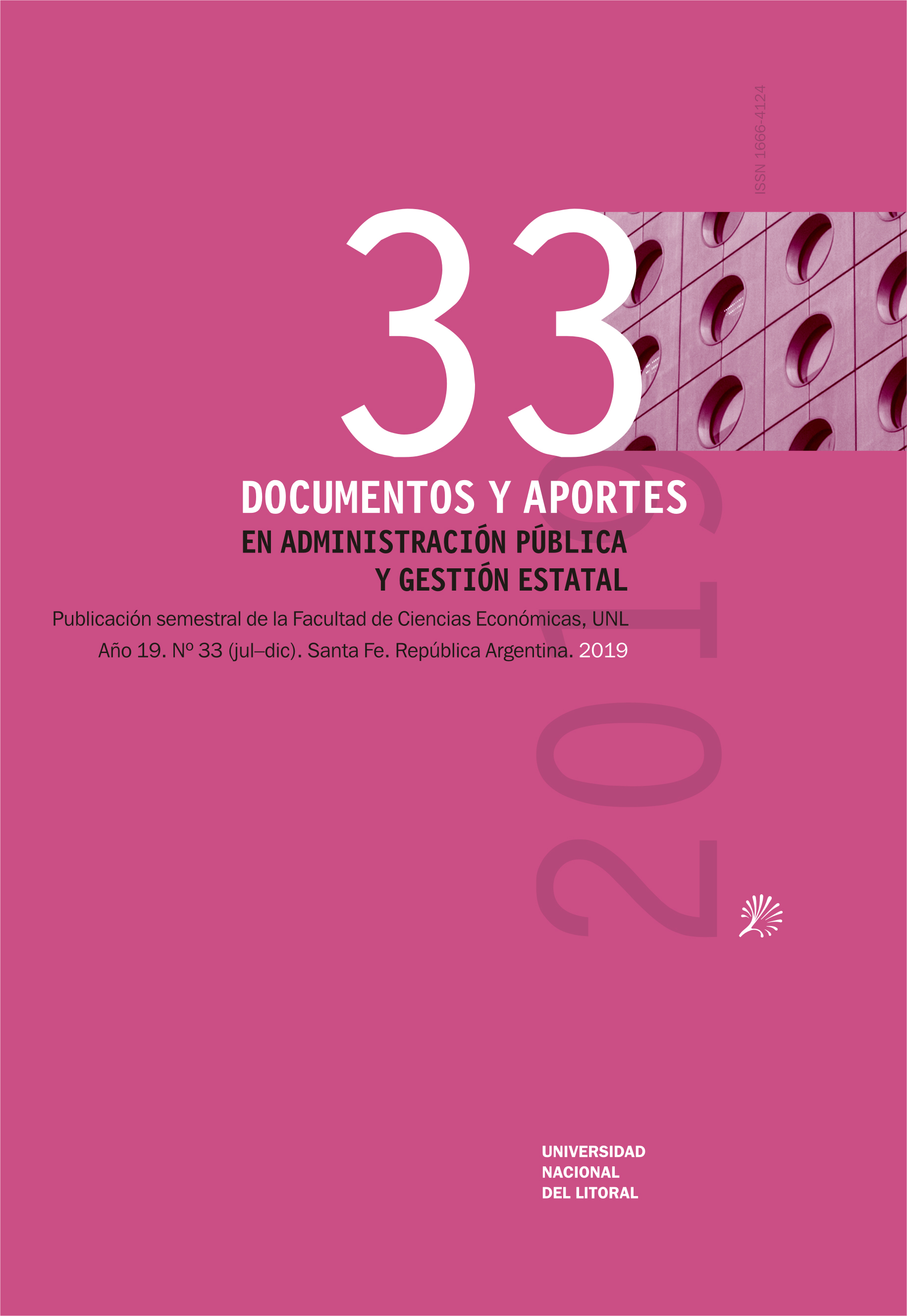Estado local: elementos para una teoría y un enfoque analítico para su estudio
DOI:
https://doi.org/10.14409/daapge.v19i33.9136Keywords:
local State, state theory strategic, relational aproach, state spatialityAbstract
The article problematizes some theoretical traditions on local government and subnational states, recognize some limitations of these approaches and present some analytical alternatives for the study of Local State. It asserts that, for the latter, a State Theory based on a relational approach is needed to take into account a notion of the States as both the result and the strategic context of social relations in which two inseparable and interdependent dimensions operate —the formal–institutional dimension and the substantial dimension (ideas– speeches–strategic actions)—. It is argued that Bob Jessop’s Strategic Relational Approach (EER) and its institutional, spatial and discursive turns may contribute to approach the specificity of Local State. The State is not a given and monolithic reality but, as a social relationship, it is in permanent and potential transformation. In the process, Local State is the expression of the territorial organization of political power but at the same time local based socio–political processes may interpellate and redefine state’s project at all levels. This theoretical understanding may be tested by comprehensive analysis of the dynamics by which a particular «form» of local state materializes or changes in concrete empirical cases.







